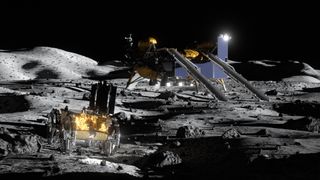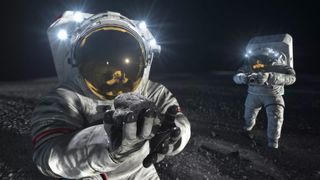The universe
Explore The universe
Latest about The universe
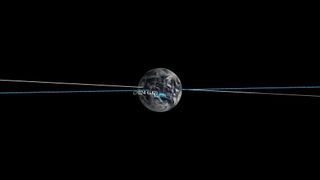
Car-size asteroid gives Earth a super-close shave with flyby closer than some satellites
By Josh Dinner published
A newly discovered space rock will harmlessly pass by Earth today. Still, at less than a tenth the distance to the moon, asteroid 2024 GJ2 will miss the planet by the skin of its teeth.

Gravitational waves reveal 1st-of-its-kind merger between neutron star and mystery object
By Sharmila Kuthunur published
The mystery object, which falls right within the mass-gap range, sheds light on a long-sought, murky realm.

Trains, planes and a total solar eclipse! Watching the moon block the sun was a transportation adventure (exclusive)
By Elizabeth Howell published
My family has been in transportation for generations, in planes and trains. I finally got my two ancestral lines to meet, eclipse-style, at a Canadian rail station near an airport.
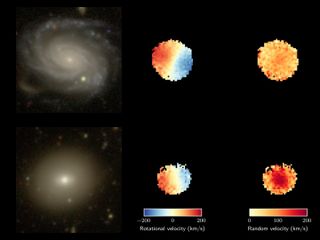
Stars make a bigger mess in old galaxies, and scientists just figured out why
By Keith Cooper published
More evolved galaxies demonstrate a greater range of stellar motions compared to the orderly, circular orbits of stars like our sun in the Milky Way.

Why Peter Higgs leaves a massive legacy in the field of physics
By Robert Lea last updated
On April 8, 2024, Peter Higgs passed away. Pioneering the discovery of the Higgs boson, the mark the theoretical physicist has left on physics is immense.
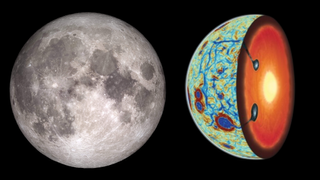
What happened when the moon 'turned itself inside out' billions of years ago?
By Robert Lea published
The moon underwent a reversal around 4.2 billion years ago, flipping itself "inside out" after a giant impact to create the picture of the faithful lunar companion that we see today.

Higgs boson: The 'God Particle' explained
By Robert Lea last updated
Reference The Higgs boson is a fundamental particle discovered on July 4, 2012, by researchers at the Large Hadron Collider (LHC) located at CERN, Switzerland.

Thousands of hidden meteorites could be lost forever as they sink in Antarctic ice, taking their cosmic secrets with them
By Harry Baker published
A new study warns that 5,000 meteorites could be sinking beneath Antarctica's icy surface every year as a result of climate change, depriving scientists of vital information about our solar system.
Get the Space.com Newsletter
Breaking space news, the latest updates on rocket launches, skywatching events and more!
